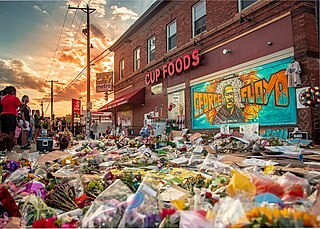Related Research Articles

The "Battle Hymn of the Republic" is an American patriotic song written by the abolitionist writer Julia Ward Howe during the American Civil War.

David Conte is an American composer who has written over 150 works published by E.C. Schirmer, including six operas, a musical, works for chorus, solo voice, orchestra, chamber music, organ, piano, guitar, and harp. Conte has received commissions from Chanticleer, the San Francisco Symphony Chorus, Harvard University Chorus, the Men’s Glee Clubs of Cornell University and the University of Notre Dame, GALA Choruses from the cities of San Francisco, New York, Boston, Atlanta, Seattle, and Washington, D.C., the Dayton Philharmonic, the Oakland Symphony, the Stockton Symphony, the Atlantic Classical Orchestra, the American Guild of Organists, Sonoma City Opera, and the Gerbode Foundation. He was honored with the American Choral Directors Association (ACDA) Brock Commission in 2007 for his work The Nine Muses, and in 2016 he won the National Association of Teachers of Singing (NATS) Art Song Composition Award for his work American Death Ballads.

A glee club is a musical group or choir group, historically of male voices but also of female or mixed voices, which traditionally specializes in the singing of short songs by trios or quartets. In the late 19th century it was very popular in most schools and was made a tradition to have in American high schools from then on.

"Far Above Cayuga's Waters" is Cornell University's alma mater. The lyrics were written circa 1870 by roommates Archibald Croswell Weeks, and Wilmot Moses Smith, and set to the tune of "Annie Lisle", a popular 1857 ballad by H. S. Thompson about a heroine dying of tuberculosis.

"Don't Stop Believin'" is a song by American rock band Journey. It was released in October 1981 as the second single from the group's seventh studio album, Escape (1981), released through Columbia Records. "Don't Stop Believin'" shares writing credits between the band's vocalist Steve Perry, guitarist Neal Schon, and keyboardist Jonathan Cain. It is a mid-tempo rock anthem and power ballad.

"Sister Christian" is a song by the American hard rock band Night Ranger. A power ballad, it was released in March 1984 as the second single from their album Midnight Madness. It was ranked No. 32 on VH1's 100 Greatest Songs of the 1980s. It was written and sung by the band's drummer, Kelly Keagy, for his sister. It was the band's biggest hit, peaking at number five on the Billboard Hot 100, and staying on the charts for 24 weeks. It also reached No. 1 in Canada. The song is used in several films, including Boogie Nights (1997), Superstar (1999), Friday the 13th (2009) and Ben Affleck's 2023 film Air (2023).

The "Penn State Alma Mater" is the official alma mater of The Pennsylvania State University. The song was accepted by the university in 1901.

Stephen Paulus was an American Grammy Award winning composer, best known for his operas and choral music. His style is essentially tonal, and melodic and romantic by nature.

The San Francisco Gay Men's Chorus (SFGMC) is the world's first openly gay chorus, one of the world's largest male choruses and the group most often credited with creating the LGBT choral movement.
The Community Women's Orchestra (CWO), based in Oakland, California, was founded by conductor Nan Washburn in 1985 as a community project adjunct to The Women's Philharmonic (TWP), a now-defunct, professional orchestra.

The Ohio State University Men's Glee Club is an all-male choral ensemble at Ohio State University. Officially founded in 1875, the Men's Glee Club is one of the oldest student organizations on Ohio State's campus and one of the oldest collegiate glee clubs in the United States. The group has garnered many accolades, most notably winning Choir of the World 1990 from the Llangollen International Musical Eisteddfod.

Bradley Douglas Falchuk is an American television writer, director, and producer. He is best known for co-creating the television series Glee, American Horror Story, Scream Queens, and Pose with Ryan Murphy. He was also a writer and executive producer for Nip/Tuck and is married to actress Gwyneth Paltrow.

"We Are Young" is a song recorded by American pop rock band Fun, featuring American singer Janelle Monáe. It is the third track on the group's second studio album, Some Nights (2012). The song was released on September 20, 2011, as the lead single from the album. The song quickly received widespread acclaim from music critics, with many noting the song as a breakthrough for the indie genre and praising the song's catchiness. "We Are Young" attained commercial success worldwide, reaching number one in several countries.

Darren Everett Criss is an American actor, singer, and songwriter. He rose to fame starring on the television series Glee (2010–2015) and received Emmy and Golden Globe acting awards for his leading role as spree killer Andrew Cunanan in The Assassination of Gianni Versace: American Crime Story (2018). He has also appeared on Broadway and in film and has released several musical albums.

"Loser like Me" is an original song performed by the cast of American television series Glee, taken from their sixth soundtrack album, Glee: The Music, Volume 5. The song was written and produced by Adam Anders, Max Martin, and Peer Åström, and Shellback, with additional songwriting credit from Savan Kotecha. The song, with another track "Get It Right", were the first two original songs to be featured on the show. The song is their first official single, being sent to US radio on March 1, 2011. In order for the song to have radio appeal, Anders recruited Martin to produce "Loser like Me" while he was in the United States working on Britney Spears' Femme Fatale.
Dr. Kathleen Alison McGuire is a choral and orchestral conductor, arranger, composer, music educator, vocalist and multi-instrumentalist. Known also for her work with social justice and human rights organizations, from 2000 to 2010 she served as the first female artistic director and conductor of the San Francisco Gay Men's Chorus – the world's first openly gay choral organization – and in 2010 she established Singers of the Street: a choir of people affected by homelessness in San Francisco. She became a US citizen in 2011 and, in 2013, returned to Australia to serve as director of music at Queen's College and co-artistic director of the School of Hard Knocks. In 2006, she was a grand marshal in the San Francisco LGBT Pride Parade. Her contributions have officially been recognized by the California Senate and State Assembly, and "Kathleen McGuire Day" was designated twice in her honor by San Francisco mayors Gavin Newsom and Edwin Lee.

"Varsity" is a fight song of the University of Michigan.

Ave Maria is a 1964 motet by Franz Biebl, composed for double choir, a large four-part choir and a three-part choir which can be performed by soloists. It is a setting of part of the Latin liturgical Angelus prayer, which contains the Ave Maria as a refrain. The composition was originally written for men's chorus, but the composer wrote arrangements for mixed choir and women's choir. The work and arrangements were published by Wildt's Musikverlag, first in 1964. The piece first became famous when a U.S. group, the Cornell University Glee Club, included it in their Christmas programs, and more famous when the Chanticleer ensemble made it part of their regular repertoire. It was published in the U.S. by Hinshaw and became one of the publisher's best-selling items.

The Black Lives Matter movement has been depicted and documented in various artistic forms and mediums including film, song, television, and the visual arts. In some instances this has taken place in the form of protest art. These cultural representations have also grown organically among artists who seek to partake in activist efforts in support or in recognition of the Black Lives Matter movement. The themes conveyed in these artistic works address the history of racism and injustice toward people of color in the United States and typically express sentiments of anger and fear as well as solace and hope.
Norma Ruth Wendelburg was an American composer, Fulbright scholar, pianist and teacher.
References
- 1 2 Goldberg, Daniel (December 11, 2019). "Creating a Space for Empathy: Composer Joel Thompson speaks about Seven Last Words of the Unarmed". WFMT. Archived from the original on December 15, 2019. Retrieved December 14, 2019.
- ↑ Grimes, Ryan (April 26, 2016). "UM Men's Glee Club remembers lives lost with "Seven Last Words of the Unarmed"". Michigan Radio. Archived from the original on December 15, 2019. Retrieved December 14, 2019.
- 1 2 3 "Ode to Understanding". Tallahassee Symphony Orchestra. Archived from the original on December 15, 2019. Retrieved December 14, 2019.
- ↑ "Noteworthy: A Reminder that "Art Should Not Always Be Comfortable" | Chorus America". www.chorusamerica.org. Archived from the original on June 12, 2020. Retrieved June 12, 2020.
- ↑ "Shirin Barghi". Shirin Barghi. Archived from the original on June 12, 2020. Retrieved June 12, 2020.
- ↑ Hawkins, Sydney (April 19, 2016). "Social justice + music: 'Seven Last Words of the Unarmed' premieres at U-M". Michigan News. Archived from the original on December 15, 2019. Retrieved December 14, 2019.
- 1 2 "'Seven Last Words of the Unarmed' project adds educational resources | U-M School of Music, Theatre & Dance". University of Michigan School of Music, Theatre & Dance. June 4, 2020. Archived from the original on June 18, 2020. Retrieved June 11, 2020.
- ↑ "Noteworthy: A Reminder that "Art Should Not Always Be Comfortable" | Chorus America". www.chorusamerica.org. Archived from the original on June 12, 2020. Retrieved June 12, 2020.
- ↑ "Review: Chicago Sinfonietta: In 'Seven Last Words of the Unarmed,' a sobering, potent tribute to Dr. King". Opus 3 Artists. January 21, 2020. Archived from the original on June 12, 2020. Retrieved June 12, 2020.
- ↑ Kogan, Judith (January 16, 2017). "Undeniable Power: 'Seven Last Words' Of Unarmed Men". WGBH. Archived from the original on December 15, 2019. Retrieved December 14, 2019.
- ↑ "SFGMC Presents "Bridges" - Thursday, March 29, 2018". SFGMC. February 14, 2018. Archived from the original on June 12, 2020. Retrieved June 12, 2020.
- ↑ "Social justice music project debuted at U-M back in national spotlight amid protests". June 5, 2020. Archived from the original on June 5, 2020. Retrieved June 5, 2020.
- ↑ "Hear Me Out: "Seven Last Words of the Unarmed" | Hear Me Out". Archived from the original on June 5, 2020. Retrieved June 5, 2020.
- ↑ "Recommended Streaming from the Interwebs". Archived from the original on June 5, 2020. Retrieved June 5, 2020.